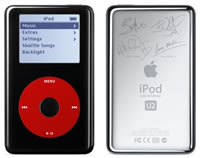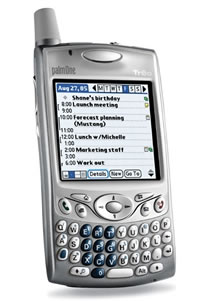A new partnership of opposites may be in the offing, one that will allow you to download pay-for and free songs from the Internet. The partnership called Mashboxxx, first reported in Friday’s Los Angeles Times, will happen between Sony BMG Music Entertainment and online peer-to-peer software distributor Grokster. This is quite an historical venture really, being the first earnest public partnership between a major recording company and an established file-sharing outfit. There have been many rumours (whispered behind the hand) of these schemes already being run.
Yes, Sony BMG has broken ranks with the rest of the entertainment industry by embarking on this venture with Grokster, that combines free music sampling with paid downloads. The free downloads will be promotional versions of songs by Sony BMG acts, and / or you can buy licensed, higher quality versions. Punters already use Grokster to search, download and distribute a wide variety of music files, but most of these are only copies of CD-quality recordings.
To many, this looks like a case of joining the enemy when you can’t beat them – a tactic that has worked well in many instances throughout history. As it happens, Grokster only recently settled a copyright infringement lawsuit filed against them by recording companies, over a Spanish Web site that was selling music downloads without permission.
But why go down the expensive and lengthy road of litigation when, like Sony BMG and Grokster, you can settle on a legitimate business model that allows you to work together, using each other’s expertise in a mutually beneficial way?
Well finally the music industry is starting to acknowledge that Peer-to-peer (P2P) networks are very efficient at distributing files. Not only that, but they get to save money by not paying all of the bandwidth charges for distributing the files, as the consumer bandwidth is used to share the files around.
Mashboxxx is expected to employ some kind of digital fingerprinting technology that will be able to filter out unauthorized song copies from file-sharing networks, and a version of this type of filtering technology has been developed by San Francisco-based Snocap Inc.
 Apple’s much anticipated and predicted new iPod – iPod Photo, launched late yesterday, has moved into the multimedia realm, allowing users to view and share photos as well as the normal music play back. The new iPod Photo can hold up to 25,000 pictures and can be connected to a television to play video slide shows. The 40-gigabyte version is priced at $499 (~£272) and the 60-gigabyte model is priced at $599 (~£326).
Apple’s much anticipated and predicted new iPod – iPod Photo, launched late yesterday, has moved into the multimedia realm, allowing users to view and share photos as well as the normal music play back. The new iPod Photo can hold up to 25,000 pictures and can be connected to a television to play video slide shows. The 40-gigabyte version is priced at $499 (~£272) and the 60-gigabyte model is priced at $599 (~£326). The U2 iPod is expected to be available mid-November for a suggested retail price of £249 (~$456) through the Apple Store, Apple’s retail stores and Apple Authorised Resellers. IPod TV adverts showing U2 were shown on UK television this evening.
The U2 iPod is expected to be available mid-November for a suggested retail price of £249 (~$456) through the Apple Store, Apple’s retail stores and Apple Authorised Resellers. IPod TV adverts showing U2 were shown on UK television this evening. A finer, mellow blend of phone and PDA, PalmOne launched the Treo 650 in the US yesterday. There are changes on the outside and changes on the inside – some cosmetic, some ergonomic, and some fundamentally technical. I’d be happy to ditch my current phone if I won this in a raffle!
A finer, mellow blend of phone and PDA, PalmOne launched the Treo 650 in the US yesterday. There are changes on the outside and changes on the inside – some cosmetic, some ergonomic, and some fundamentally technical. I’d be happy to ditch my current phone if I won this in a raffle!